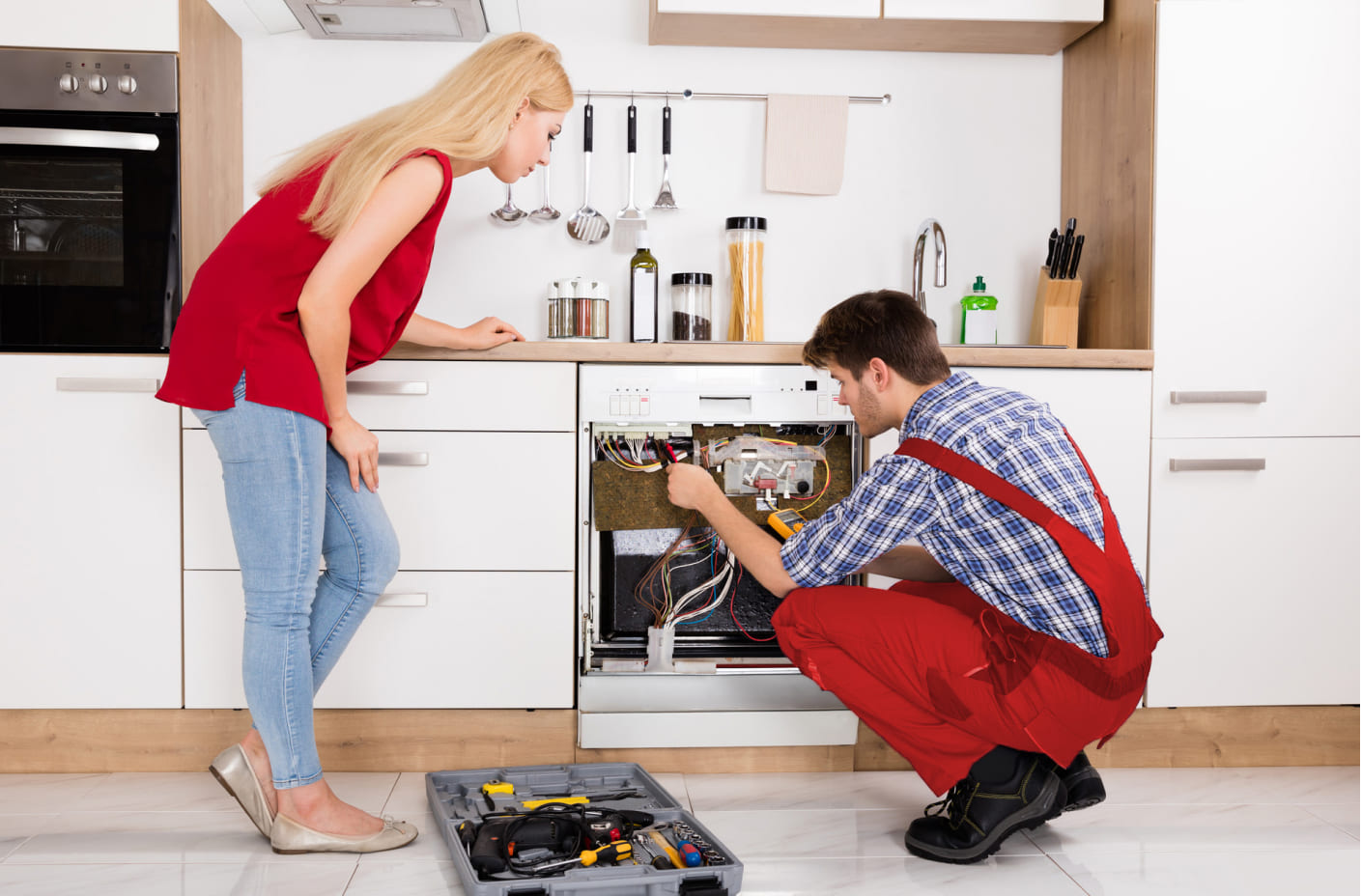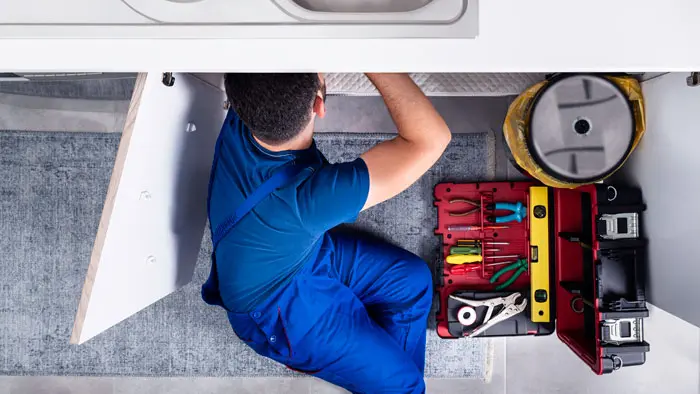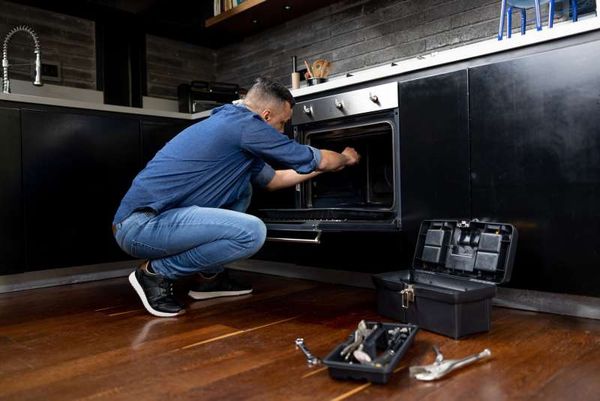The Ultimate Overview to Recognizing Appliance Fixing in the house
When your fridge stops cooling down or your stove rejects to warm, it can really feel overwhelming. Recognizing appliance repair work in your home can conserve you time and cash. You'll learn to recognize symptoms, utilize important tools, and comply with an organized troubleshooting procedure. But prior to you start, there are crucial security precautions you require to take right into account. What are the most usual problems, and just how can you repair them? Let's explore the basics.
Common Home Appliance Troubles and Their Signs
When your devices start breaking down, it's necessary to acknowledge the indicators early on. Neglecting them can cause bigger concerns and pricey repairs. If your fridge isn't cooling down effectively, you may see cozy areas or condensation developing. This can show a falling short compressor or an obstructed vent.Your dish washer may show problems through unclean recipes or uncommon noises throughout cycles. If you listen to grinding or clanking, it's time to investigate.A cleaning device that won't spin or drain pipes can leave you with soaked laundry, suggesting a clogged up drain or a malfunctioning pump.Lastly, if your stove's temperature seems off or it takes permanently to preheat, you may be taking care of a faulty thermostat. By staying sharp to these signs and symptoms, you can resolve problems prior to they rise right into major repair services.
Important Tools for Appliance Repair
When you're tackling appliance repair services in the house, having the right tools is vital. Fundamental hand tools like screwdrivers and pliers will aid you take apart and fix various appliances, while electrical screening tools ensure you're working securely with electrical wiring. Allow's review what you require to obtain started on your repair journey.
Fundamental Hand Tools
Having the right tools is crucial for efficient home appliance fixing at home. Beginning with a dependable screwdriver set, including both flathead and Phillips types, as screws prevail in device setting up. Pliers are also important; they assist with gripping, twisting, and reducing cables or tiny components. A pair of needle-nose pliers can reach limited areas quickly. You'll require an excellent flexible wrench for tightening or loosening nuts and screws. An utility knife is useful for puncturing packaging or insulation. Do not fail to remember a durable workbench or surface to safely organize your devices and parts. With these basic hand devices, you'll be well-prepared to take on most home appliance repair work that come your way.
Electrical Testing Devices
Alongside fundamental hand tools, electrical testing gadgets play a necessary duty in appliance repair. These devices aid you diagnose electric problems and warranty appliances work safely. A multimeter is crucial; it determines voltage, existing, and resistance, permitting you to identify issues rapidly. A non-contact voltage tester is one more essential, letting you detect live wires without making direct call, boosting your security. Secure meters are great for measuring present flow in cords without separating them, saving you effort and time. Additionally, circuit testers can swiftly check if electrical outlets are working effectively. By making use of these tools, you'll streamline your troubleshooting process and boost your repair work skills, making home appliance upkeep a great deal simpler.
Step-by-Step Guide to Diagnosing Home Appliance Issues
When your appliance acts up, it can be irritating, however detecting the issue doesn't need to be frustrating. You'll find out to determine usual problems and apply reliable repairing strategies. Allow's walk through the steps to get your device back in functioning order.
Typical Home Appliance Problems

Troubleshooting Methods Described

Fixing Major Kitchen Devices: A Closer Look
Have you ever before asked here yourself exactly how to tackle typical problems with your cooking area home appliances? Repairing major kitchen home appliances like fridges, ovens, and dishwashers can be easier than you assume. Beginning by determining the trouble-- whether it's a fridge not cooling or a stove that won't heat. Usually, an easy reset or inspecting the power resource can address the issue.For fridges, clean the condenser coils and inspect the door seals. If your oven's not heating, evaluate the burner and thermostat. Dish washers might just require a tidy filter or a reset to obtain them back at work. Constantly disconnect the device prior to diving right into fixings to assure your safety.Don' t neglect to seek advice from the customer handbook for certain repairing ideas associated with your model. With a little bit of perseverance and the right tools, you can confidently tackle device repairs and conserve money while doing so!

Troubleshooting Laundry Appliances: Tips and Techniques
When your laundry devices start acting up, it can really feel overwhelming, but fixing them doesn't have to be a trouble. Begin by checking the power supply. Validate the device is plugged in and the outlet is functioning. Next off, examine the door or lid switch; a defective switch can protect against the equipment from operating.For washers, if it's not spinning, check for out of balance loads. Rearranging the clothing could solve the problem. If your dryer isn't home heating, tidy the lint filter and check the vent for blockages.Listen for unusual noises; they can suggest a problem. If your home appliance is leaking, check the tubes for cracks or loosened connections. File any error codes shown on electronic displays, as they can lead you in identifying the problem. Get in touch with the user manual for particular fixing pointers connected to your version.
Security Precautions to Take Throughout Repairs
Before you start any kind of device fixings, it's crucial to focus on safety and security to avoid accidents or injuries. First, unplug the appliance or shut off the breaker to guarantee no power reaches it while you work. Use insulated devices to decrease the risk of electrical shock. Use safety and security goggles and gloves to secure on your own from sharp edges or debris (Fixes washers and dryers Oro valley Dependable Appliance Repair).Make certain your office is clean and well-lit, so you can see what you're doing. Keep children and pet dogs away from the location to stay clear of interruptions and potential risks. If you're taking care of gas devices, be additional careful; look for leakages before proceeding.Take your time, and do not rush through fixings. If you feel unpredictable concerning any step, it's much better to pause and study than to presume. Following these precautions will help produce a safer setting for your do it yourself home appliance fixing job
When to Call a Professional for Help
How do you understand if it's time to contact a specialist for device repair services? If you have actually tried standard troubleshooting without success, it's a clear indication. For example, if your device still will not start or reveals unusual sounds after resetting it, don't think twice to seek professional help.When you notice leakages, smoke, or melting smells, focus on safety and security and call a pro immediately. These issues can cause more significant damages or position threats to your home.Also, if your device is under guarantee, contacting an expert is usually the best path. They can guarantee that repair work will not invalidate your warranty, conserving you cash in the lengthy run.Finally, if you're uncertain or unpleasant with complex repair work, it's smart to leave it to the specialists. Keep in mind, dealing with challenging problems without the best competence can cause costly blunders. Count on a specialist when doubtful!
Often Asked Concerns
Exactly How Can I Prevent Device Issues in the Future?
To stop appliance problems in the future, you must perform normal upkeep, check for wear and tear, tidy filters, and avoid overloading. Staying aggressive will help expand their lifespan and maintain them running efficiently.
What Are one of the most Usual Do It Yourself Device Repair Work Mistakes?
You could ignore security preventative measures, skip fixing steps, or make use of wrong devices when attempting DIY appliance repairs. Hurrying the process or overlooking manufacturer standards can lead to even more substantial problems and pricey blunders. Remain client and notified!
Just how Do I Know if a Component Needs Substitute?
You can tell if a component needs substitute by looking for unusual sounds, leaks, or inconsistent performance. If the home appliance has a hard time to run appropriately or reveals noticeable damages, it's most likely time for a replacement.
Can I Make Use Of Generic Components for Home Appliance Repairs?
Yes, you can make use of generic parts for home appliance fixings, but ascertain they work - Fixes washers and dryers Oro valley Dependable Appliance Repair. Generic components could save you money, yet they can influence efficiency or long life, so weigh your choices carefully prior to choosing
What Service Warranties Cover Home Appliance Repairs?
A lot of home appliance guarantees cover repair work for making defects, but they typically omit damages from abuse. Examine your service warranty terms carefully, as some might need utilizing licensed technicians and initial components for coverage to remain legitimate.